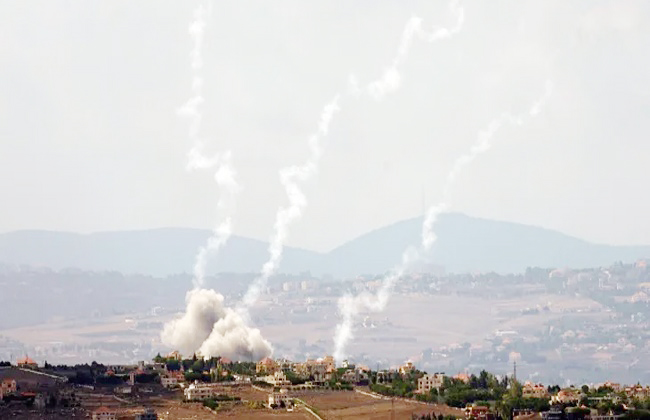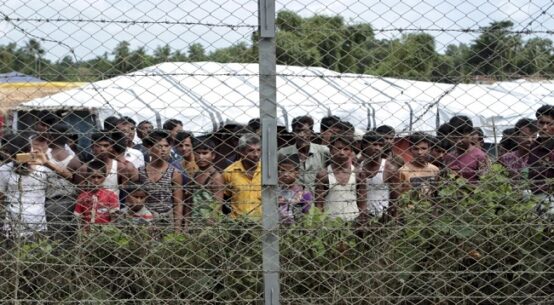
Israel launched another air strike in Lebanon. As a result of the ongoing conflict with Hezbollah, the Israeli forces carried out several rounds of airstrikes in the south and east of Lebanon on Monday (September 23) morning.
At least 182 people were killed and more than 727 injured in the attack. Lebanon’s health ministry said children, women and paramedics were among the dead and wounded in the attack. Israel and Hezbollah have been retaliating against each other for the past few days. This raises concerns about a full-scale war spreading across the Middle East.
According to a report by Al Jazeera, the Israeli army launched about 150 airstrikes in Lebanon on Monday morning.
A rocket hit an uninhabited hill east of the Lebanese port city of Byblos, local residents said.
Lebanon’s state media National News Agency reported that 182 people were killed and 727 injured in Israeli attacks in eastern and southern Lebanon.
A spokesman for the Israeli military said it had launched a massive attack on Lebanon. A ‘pre-emptive strike’ has been launched targeting Hezbollah installations.
Residents of southern and eastern Lebanon are being asked by the Israeli military to evacuate Hezbollah’s territory. People in southern Lebanon, as well as the capital Beirut, say text messages are being sent to their cellphones urging them to leave their positions quickly.
However, the Lebanese government has urged not to listen to such warnings and messages from the Israeli forces. The country’s Information Minister Ziad Makari made this call to the people.
Israeli forces have signaled the start of a possible ground operation in Lebanon. In response to a question from journalists, the Israeli military spokesman said, “We will do whatever is necessary to ensure the return of the displaced residents of northern Israel to their homes.”
Hundreds of pagers and walkie-talkies (wireless communication devices) used by Hezbollah members exploded simultaneously on two consecutive days last Tuesday and Wednesday. Several people including Hezbollah fighters were killed. More than 3,000 others were injured. It blamed Israel for the explosion. However, Tel Aviv did not comment on this.
After these two incidents, Hizbullah launched a missile and drone attack on the northern part of Israel last Thursday (September 19). Two Israeli soldiers were killed and several wounded in the attack.
In response, on Friday (September 20), Israel launched an airstrike on a residential area in Beirut, the capital of Lebanon. In this, at least 45 people were killed, including the top commander of Hezbollah, Ibrahim Akil.
The next day, Saturday (September 21) night, Israel launched another air attack on Lebanon. The Israeli forces said that more than 400 missiles were fired at Hezbollah positions. In response, Hezbollah claimed to have fired dozens of rockets at an air base called ‘Ramat David’ in the east of Haifa, Israel, on Sunday (September 22).
Lebanese media reported that Israel sent text messages and took over radio stations in the country to urge civilians to flee areas where Hezbollah fighters were deployed, as well as sites used by the terror organization to store weapons and munitions.
They reported that the IDF made more than 80,000 phone calls to residents to prevent civilian casualties.
The head of the United Nations Interim Force in Lebanon (UNIFIL) ordered all civilian members of the organization to leave areas south of the Litani River, according to the Lebanese Al-Akhbar news.
UN Resolution 1701, which ended the fighting during the Israel-Hezbollah war in 2006, stipulated that no Hezbollah force was allowed to enter areas south of the Litani. Since then, however, the Iranian-backed terrorist organization has developed its military infrastructure up to the Israeli border and deployed massive forces, with which it began its attacks on Israel on October 8, the day after the Hamas-led massacre in southern Israel.

